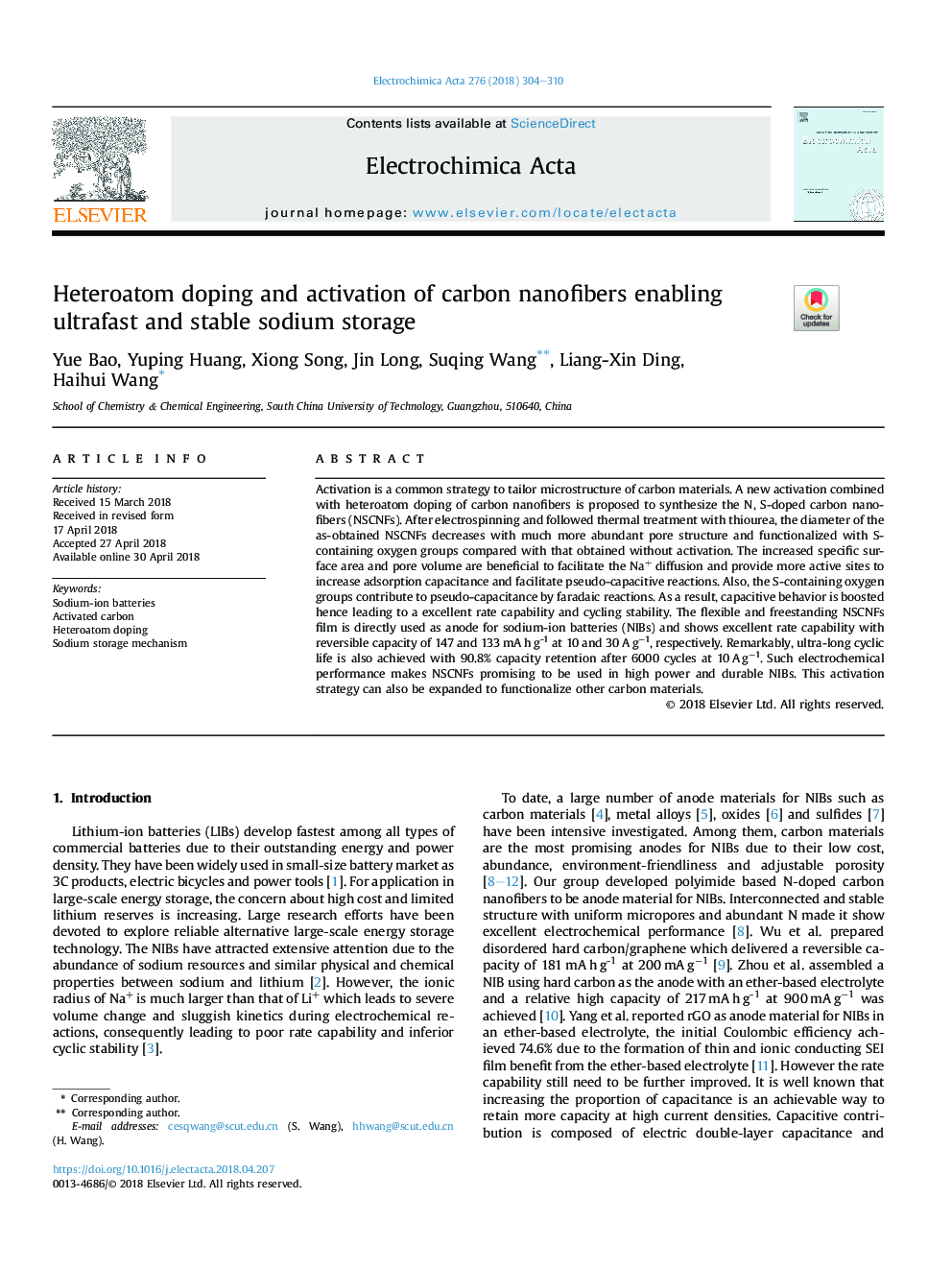| Article ID | Journal | Published Year | Pages | File Type |
|---|---|---|---|---|
| 6602855 | Electrochimica Acta | 2018 | 7 Pages |
Abstract
Activation is a common strategy to tailor microstructure of carbon materials. A new activation combined with heteroatom doping of carbon nanofibers is proposed to synthesize the N, S-doped carbon nanofibers (NSCNFs). After electrospinning and followed thermal treatment with thiourea, the diameter of the as-obtained NSCNFs decreases with much more abundant pore structure and functionalized with S-containing oxygen groups compared with that obtained without activation. The increased specific surface area and pore volume are beneficial to facilitate the Na+ diffusion and provide more active sites to increase adsorption capacitance and facilitate pseudo-capacitive reactions. Also, the S-containing oxygen groups contribute to pseudo-capacitance by faradaic reactions. As a result, capacitive behavior is boosted hence leading to a excellent rate capability and cycling stability. The flexible and freestanding NSCNFs film is directly used as anode for sodium-ion batteries (NIBs) and shows excellent rate capability with reversible capacity of 147 and 133â¯mAâ¯hâ¯g-1 at 10 and 30â¯Aâ¯gâ1, respectively. Remarkably, ultra-long cyclic life is also achieved with 90.8% capacity retention after 6000 cycles at 10â¯Aâ¯gâ1. Such electrochemical performance makes NSCNFs promising to be used in high power and durable NIBs. This activation strategy can also be expanded to functionalize other carbon materials.
Related Topics
Physical Sciences and Engineering
Chemical Engineering
Chemical Engineering (General)
Authors
Yue Bao, Yuping Huang, Xiong Song, Jin Long, Suqing Wang, Liang-Xin Ding, Haihui Wang,
